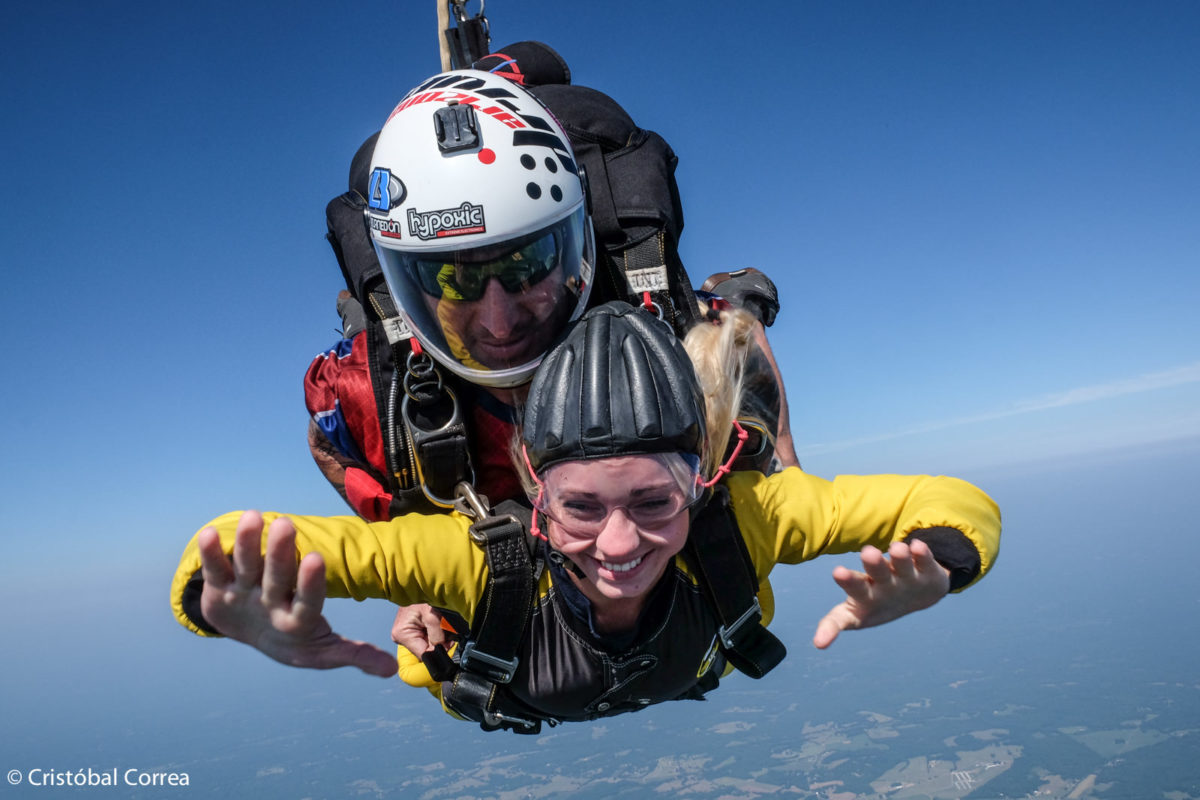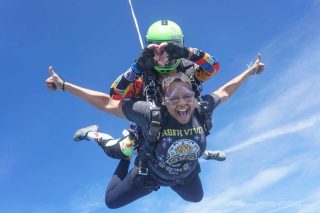Does Skydiving Hurt Your Ears?
General
7 years ago
Skydiving is awesome. Really! It’s new, it’s exciting and it’s full of brand new sensations that you’ve never felt before – and may never feel again (unless you come back and jump some more!). One of the sensations we’re asked about from time to time is that of air pressure. Now, anyone who’s flown in a commercial aircraft before will know that the changing air pressure as you go up and come down can make it feel like your ears are popping. But is that the same when you’re skydiving and how is skydiving with a cold?
Going up…
OK, so one of the main things that affect your experience on the way to altitude is that skydiving airplanes are different to commercial airliners.
How? You ask.
Well, aside from being a whole bunch smaller – and the lack of in-flight refreshments! – skydiving airplanes differ from commercial aircraft because they don’t have the same cabin pressurization.
While the airplane taking you away on vacation pressurizes at 3,000 feet – which means that at every point above 3,000 feet, it feels like 3,000 feet in terms of the amount of pressure you feel – a skydiving airplane is not pressurized, so you feel the air changing as you get higher.
That can affect how your ears feel. They might feel the changing air pressure making them feel a little stuffy. On the whole – and providing you’re not sick (as we’ll talk about later) – the whole thing is painless.
Going down…
On the way back to earth, you’ll be traveling at around 120mph. That’s pretty fast!
That, of course, has the opposite effect of going up in the airplane. Your ears will feel the changing air pressure on the way down, just as they do on the way up, but this time, the change is happening much faster.

Think about it this way; the air is thinner higher up, so the pressure outside your ears is less than inside, meaning there is a push from the inside to the outside as the two try to equalize. As you come down, the air is getting thicker and the pressure is more than inside your ears, meaning the push goes the other way.
Physically, this feels like your ears are filling up, and it can make it harder to hear. But don’t worry, it’s only temporary…
How to Equalize Your Ears?
Equalizing your ears means gently blowing out your nose while keeping the nostrils covered. You can also try to swallow the same time you are gently blowing into your nose. This changes the air pressure inside your ears to match that outside of them, making you feel more comfortable again. It’s likely you’ve done this before, maybe by sucking on a piece of candy on the way to altitude on your last vacation.
Because equalizing means balancing your ears to the outside environment, we always recommend waiting to equalize until you get down. That’s because you want to balance your ears against the environment on the ground, rather than up high since you’re not planning to stay up high for long!
Skydiving with a cold
Skydiving with blocked sinuses is an absolute no-no.
If you jump with blocked sinuses – maybe you’re sick or you have a common cold – you risk your ears being unable to equalize. And that can be very painful!
If you wake up on the morning of your skydive and your sinuses (nose or ears) feel blocked, drop us a line and we’ll be happy to advise you.




